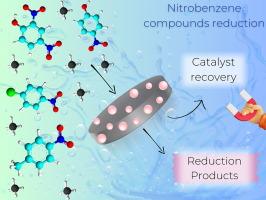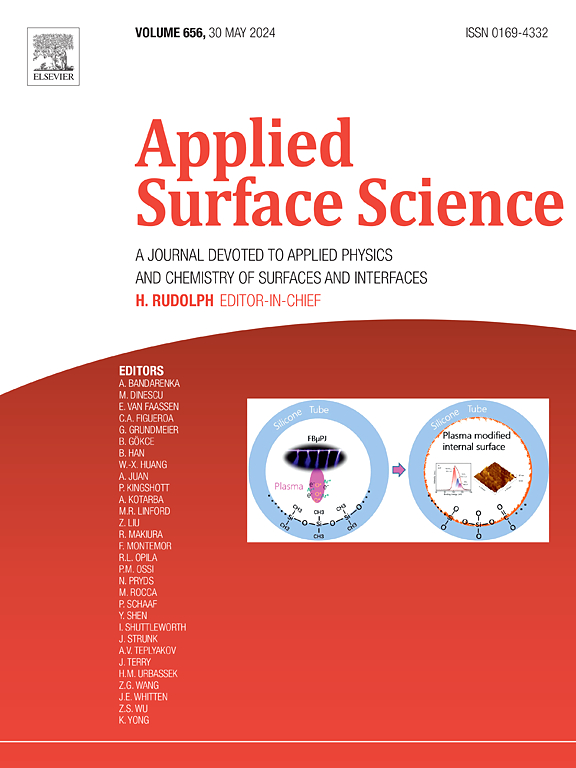基于包覆半金属铋的磁铁矿的高效多功能硝基苯化合物还原催化剂
IF 6.3
2区 材料科学
Q2 CHEMISTRY, PHYSICAL
引用次数: 0
摘要
开发用于还原硝基苯化合物的低成本催化剂对于推进工业应用和环境修复过程至关重要。我们报告了磁铁矿纳米颗粒上金属铋的合成。以 NaBH4 为还原剂,对该材料作为将 4-硝基苯酚(4-NP)还原为 4-氨基苯酚(4-AP)的催化剂进行了评估,结果表明该催化剂具有很高的催化活性,能在 1.0 分钟内将 4-NP 转化为 4-AP。催化剂的一阶动力学常数比磁铁矿对照组高 72 倍。研究了反应温度和反应物浓度的影响。反应结束后,使用磁铁即可轻松地将催化剂从反应系统中取出,并可有效地重复使用四个循环。Mag-Bi 催化剂在其他硝基苯化合物(包括 4-硝基甲苯、1-氯-4-硝基苯和 2,4-二硝基苯酚)的还原反应中也很有效。总之,这些结果表明 Mag-Bi 是一种很有前途的硝基烯烃还原催化剂,具有优异的催化性能和良好的可回收性。本文章由计算机程序翻译,如有差异,请以英文原文为准。

Efficient and versatile catalyst for nitrobenzene compounds reduction based on magnetite coated with semi-metallic bismuth
Developing low-cost catalysts for the reduction of nitrobenzene compounds is crucial for advancing industrial applications and environmental remediation processes. We report the synthesis of metallic bismuth supported on magnetite nanoparticles. The material was evaluated as a catalyst for the reduction of 4-nitrophenol (4-NP) to 4-aminophenol (4-AP) using NaBH4 as the reducing agent, demonstrating high catalytic activity by converting 4-NP into 4-AP within just 1.0 min. The catalyst exhibited a first-order kinetic constant 72 times higher than the magnetite control. The effects of reaction temperature and reactant concentration were investigated. After the reaction, the catalyst was easily removed from the reaction system using a magnet and was efficiently reused for four additional cycles. Mag-Bi was efficient as a catalyst for the reduction reaction of other nitrobenzene compounds, including 4-nitrotoluene, 1-chloro-4-nitrobenzene, and 2,4-dinitrophenol. Overall, these results suggest that Mag-Bi is a promising catalyst for nitroarene reduction, exhibiting excellent catalytic performance and good recyclability.
求助全文
通过发布文献求助,成功后即可免费获取论文全文。
去求助
来源期刊

Applied Surface Science
工程技术-材料科学:膜
CiteScore
12.50
自引率
7.50%
发文量
3393
审稿时长
67 days
期刊介绍:
Applied Surface Science covers topics contributing to a better understanding of surfaces, interfaces, nanostructures and their applications. The journal is concerned with scientific research on the atomic and molecular level of material properties determined with specific surface analytical techniques and/or computational methods, as well as the processing of such structures.
 求助内容:
求助内容: 应助结果提醒方式:
应助结果提醒方式:


